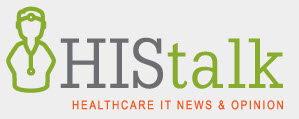12-02-2014, 01:35 AM
PeriGen Receives Patent from U.S. Patent and Trademark Office for Innovative Method to Assess Fetal Descent in Childbirth
Obstetrics technology will help clinicians evaluate need for cesarean sections
Today in the U.S. nearly one third of all births occur by cesarean delivery. Slow progress in labor is a major contributing factor in roughly half of the cesareans. PeriGen’s patented technology helps clinicians assess labor progression and determine whether cesarean delivery is truly indicated. This enhanced ability has the potential for significant clinical and financial benefits for clinicians and hospitals, as well as mothers and babies.
Clinical Benefits of Enhanced Assessment of Fetal Descent
The assessment of labor progress is a fundamental aspect of obstetrical care for every woman in labor. Clinicians assess labor progression by measuring how the neck of the womb opens (cervical dilation) and how the baby descends through the birth canal (fetal descent).
Diagnostic uncertainty regarding labor progression can lead to over-use of cesarean delivery—and although a C-section can be a life-saving technique, it is also more likely to result in infections and other complications. However, diagnostic uncertainty can result in under-use or delayed cesarean delivery with adverse complications for mother and baby.
PeriGen’s new technology applies advanced statistical methods to improve the assessment of fetal descent and reduce this uncertainty. It complements the company’s patented PeriCALM Patterns™ which applies similar methods to the evaluation of cervical dilation.
Current benchmarks for assessing fetal descent describe only general averages. However, in reality many conditions influence how rapidly fetal descent occurs for each woman in labor. Not only do these conditions vary from mother to mother, but they also change over the course of labor. PeriGen’s technology introduces a non-invasive method that helps clinicians evaluate fetal descent in a less subjective, statistically sound and consistent way—one that automatically takes into consideration the many dynamic conditions affecting labor progression.
Financial Benefits of Improving Assessment of Labor Progression
Cesarean delivery is one of the most common surgical procedures performed in the U.S. each year. C-sections also cost, on average, almost twice as much as vaginal deliveries. For this reason, reducing unnecessary C-sections has become a significant focus of both payers and health systems as they seek to improve the quality and cost of care.
“More timely and appropriate use of cesarean delivery has positive medical and financial ramifications for all parties,” said Matthew Sappern, PeriGen’s CEO.“We are particularly excited about the potential impact of this novel invention. Providing data that supports clinicians as they make important decisions about the best way to deliver a baby can significantly lower the cost of care and improve health outcomes.”
About PeriGen, Inc.
PeriGen,Inc., is an innovative provider of fetal surveillance systems employing patented, pattern-recognition and obstetrics technologies that empower perinatal clinicians to make confident, real-time decisions about the mothers and babies in their care. PeriGen’s customer-centric team of clinicians and technologists builds the most advanced systems available to augment obstetric decision-making and improve communications among the clinical team at the point of care, while supporting data flow between healthcare IT systems. PeriGen offers the only FDA-cleared EFM pattern recognition system that is validated by the NICHD. Visit us at www.PeriGen.com.
###


